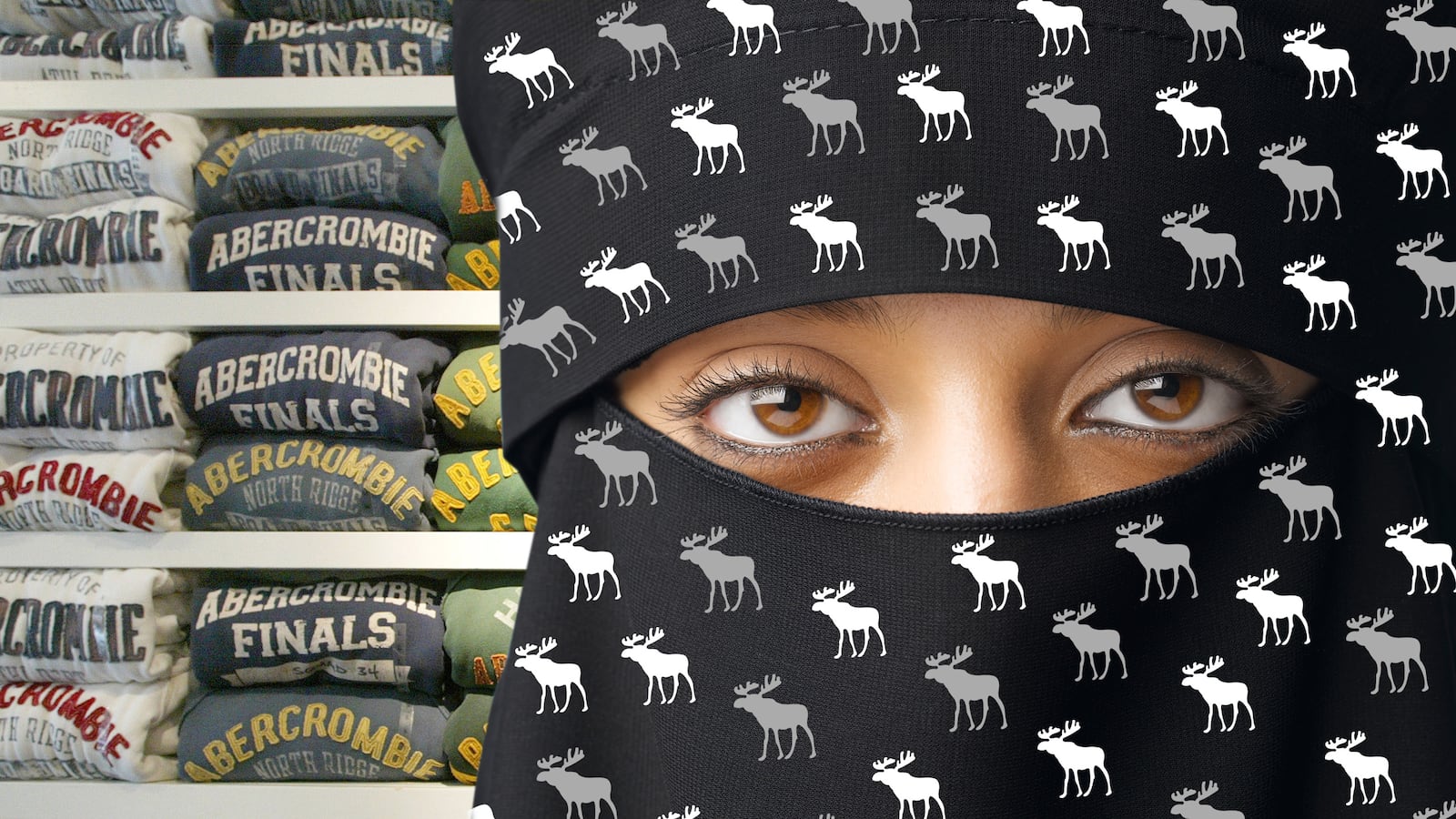Say what you want about Abercrombie & Fitch (A&F), the chain has done something special. No, I’m not talking some dazzling new clothing line for ultra hip young people. Something far better.
A&F has brought American Muslims and Jews together. Of course, the bad news for A&F is that they have united some in these two communities against them.
Last week seven orthodox Jewish groups joined with the Muslim civil rights group CAIR in filing briefs with the Supreme Court in support a lawsuit filed on behalf of Samantha Elauf against A&F. Elauf, who is Muslim, had applied for a job at an A&F store in Tulsa, Oklahoma when she was 17. The assistant manager at the A&F store had found Elauf qualified for the position and was apparently going to hire her.
However, an A&F district manager then overruled the assistant manager because he didn’t think Elauf fit A&F’s “look policy.” What part of the “look” was the issue? The part that Elauf wore a hijab. Besides the hijab, A&F doesn’t deny that Elauf was qualified.
So in steps the Equal Employment Opportunity Commission (EEOC), which filed a claim against A&F for discrimination based on religion. For those unfamiliar with A&F’s hiring practices, the clothing chain has become a laboratory for discrimination claims thanks to its “look policy.” In fact, in 2005, A&F settled a class-action lawsuit paying $40 million to several thousand minority woman who had claimed A&F had discriminated against blacks, Hispanics, and Asians applying for positions in its stores.
So why are these seven Jewish groups getting involved in a case brought for a Muslim woman? Well, as Nathan Lewin, the lawyer for these Jewish organizations, explained to the Los Angeles Times, men and women in the orthodox Jewish communities have also faced discrimination when applying for certain jobs because the men wear yarmulkes and want to take the Sabbath off from work as part of their faith. Lewin noted, “It is important that these Orthodox Jewish groups express support for this Muslim woman who has had a similar experience.”
And the brief filed by CAIR expressed a similar sentiment. “This is not an issue limited to one particular religion; many followers of several other faiths, such as Judaism and Sikhism, follow their respective religiously-motivated dress and grooming practices,” it said.
When I first posted the LA Times article about this interfaith alliance on social media, many responded that they were surprised to see Muslims and Jews standing together. However, in reality, this should be the norm, not a “pleasant surprise.”
In the United States, Jews and Muslims have a great deal in common. The most obvious being that both Judaism and Islam are minority faiths in America. Both are about 2 percent of the overall population. And sadly members of both communities have been targets of bigotry and endured discrimination and worse simply because of their faith.
While anti-Semitism in the United States is thankfully at all time lows, it was not always like this. There were times in our nation’s recent history where anti-Semitism was part of mainstream America, such as when people like Father Charles Coughlin in the 1930’s and 40’s spewed anti-Jewish diatribes to a radio audience of over 30 million people. And even today there are despicable instances of hate crimes versus Jews in our country.
Regarding Muslims, we have clearly seen in recent times an uptick in anti—Muslim bigotry. We’ve seen it on TV shows from Bill Maher to Fox News. And we’ve seen politicians openly ginning up anti-Muslim hate for political gain. In fact, in Oklahoma, where the A&F store at issue is located, State Representative John Bennett (R) publicly declared a few months ago that American Muslims are a “cancer that must be cut out of the American society.” And the list goes on.
While there has been increased interfaith work between Muslim and Jewish communities in recent years, there’s still one issue that prevents even greater unity. That issue is the Palestinian-Israeli conflict.
I’m not saying every Muslim and every Jew in America is fixated on this one issue, nor that there aren’t Jews and Muslims who find common ground on this issue. But still the Middle East conflict does cause tension between many in these two communities. I saw it first hand during the conflict in Gaza this summer when friendships ended as the conflict and the rhetoric heated up.
The reality is that the Palestinian-Israeli conflict is likely going to be with us for the foreseeable future. But disagreeing over one issue should not stand in the way of finding common ground on other subjects that are of mutual concern to our respective communities.
Perhaps one approach is to compartmentalize our views on the Middle East so that it doesn’t prevent us from building alliances on other issues. For example, we might not agree on whether Jerusalem should be divided, but I bet we all agree that people in our respective communities shouldn’t be discriminated against when applying for a job because a man wears a yarmulke or a woman wears a hijab.
The Supreme Court will hear Elauf’s case in early 2015. Regardless of the court’s decision, the Muslims and Jewish groups who have come together in this matter are setting a great example to not define our communities’ relationship with each other by our differences on one issue, but rather by the numerous issues we agree upon.






